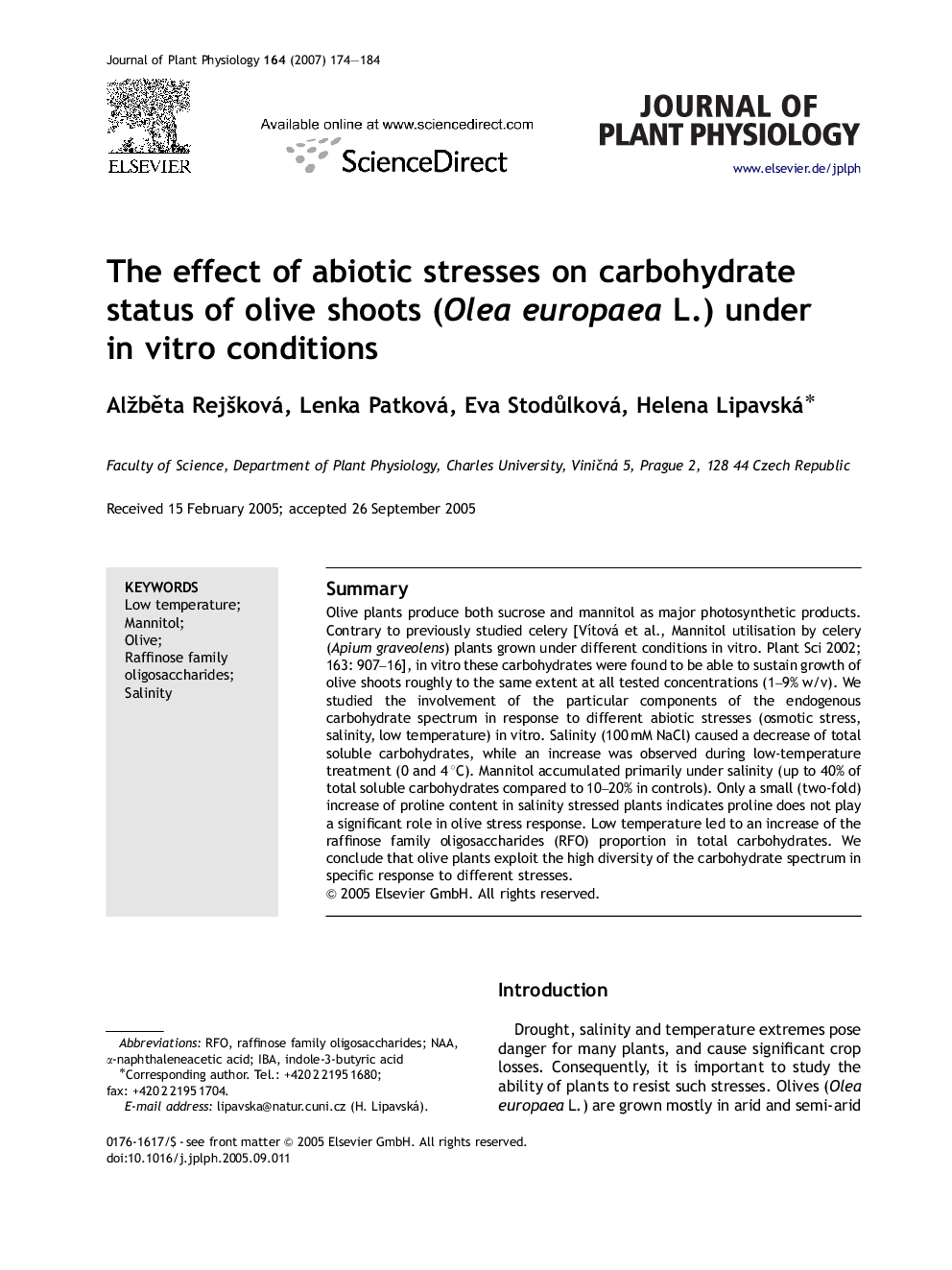| Article ID | Journal | Published Year | Pages | File Type |
|---|---|---|---|---|
| 2057274 | Journal of Plant Physiology | 2007 | 11 Pages |
SummaryOlive plants produce both sucrose and mannitol as major photosynthetic products. Contrary to previously studied celery [Vítová et al., Mannitol utilisation by celery (Apium graveolens) plants grown under different conditions in vitro. Plant Sci 2002; 163: 907–16], in vitro these carbohydrates were found to be able to sustain growth of olive shoots roughly to the same extent at all tested concentrations (1–9% w/v). We studied the involvement of the particular components of the endogenous carbohydrate spectrum in response to different abiotic stresses (osmotic stress, salinity, low temperature) in vitro. Salinity (100 mM NaCl) caused a decrease of total soluble carbohydrates, while an increase was observed during low-temperature treatment (0 and 4 °C). Mannitol accumulated primarily under salinity (up to 40% of total soluble carbohydrates compared to 10–20% in controls). Only a small (two-fold) increase of proline content in salinity stressed plants indicates proline does not play a significant role in olive stress response. Low temperature led to an increase of the raffinose family oligosaccharides (RFO) proportion in total carbohydrates. We conclude that olive plants exploit the high diversity of the carbohydrate spectrum in specific response to different stresses.
